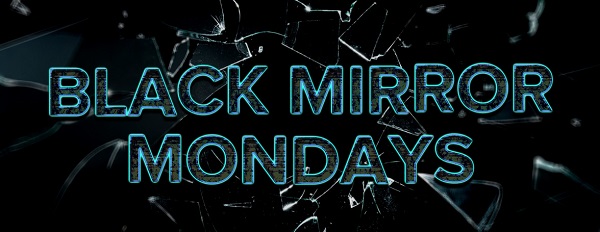I was around 14 when a PC video game called The Sims was released. The game, which was an outright sensation in the early 2000s, appealed to both hardcore gamers and folks who casually played video games. It’s safe to say that almost everyone who owned a PC compatible with The Sims had it, and even an expansion pack or two. Why was it so popular, you may ask? It was more than likely due to the fact that the subject of The Sims was the most familiar subject to us – human life. Acting as an omniscient god of sorts, players of The Sims control the lives of simulated people living in small communities and exercise their creativity by custom-building their houses, families, friend circles, jobs, dating scenes, and more. If it was something that humans deal with in real-life, The Sims eventually found a way to simulate it and allow you to control it. The concept was so much fun that most everyone caught up in the craze didn’t stop to wax philosophical about how disturbing the idea of controlling someone’s life actually is. The people in The Sims aren’t real, so what we did in that game wasn’t really hurting anyone, right?
In a literal sense, yes, removing a ladder from a swimming pool while people were using it just to watch them get tired and drown or lighting fireworks inside a home just to watch it burn (after removing all of the doors just in case there were any escape attempts, of course) doesn’t mean we would do the same thing in real-life. But we were still entertaining the ideas, even though we were just projecting them into a “safe” atmosphere where nobody actually gets hurt. And if we’re really honest with ourselves, the simulated people that we laughed at as they drown or goofily run screaming around a fire had names – names of people we knew in real-life.
Well, maybe that was just me. And my friends. And their friends. And their parents. And their parents’ friends. I don’t want to say everyone playing this game did this at least once, after all – that wouldn’t be respectful.
 Seventeen years later, we’re finally getting around to waxing philosophical about our experiences with video games and how our real-life experiences are projected onto these virtual lives.The Sims generation has grown up, and it’s a brave new world for gaming. Virtual reality is the “new hotness.” Everything seems to be online now, with single player experiences vanishing in exchange for constant interaction with other people; real people that are, in fact, disguised as simulated beings. We don’t play next to these people in the same room, but instead play worlds apart from them. We don’t know their real names, but instead their anonymous screen names. And thankfully, they don’t know us either. Gamers now live in a bubble that can only be penetrated if their virtual lives bleed out into their lives outside of the internet. Unfortunately, it appears that this is happening on a more regular basis.
Seventeen years later, we’re finally getting around to waxing philosophical about our experiences with video games and how our real-life experiences are projected onto these virtual lives.The Sims generation has grown up, and it’s a brave new world for gaming. Virtual reality is the “new hotness.” Everything seems to be online now, with single player experiences vanishing in exchange for constant interaction with other people; real people that are, in fact, disguised as simulated beings. We don’t play next to these people in the same room, but instead play worlds apart from them. We don’t know their real names, but instead their anonymous screen names. And thankfully, they don’t know us either. Gamers now live in a bubble that can only be penetrated if their virtual lives bleed out into their lives outside of the internet. Unfortunately, it appears that this is happening on a more regular basis.
USS Callister, the first episode of Black Mirror: Season 4, plots a course to tackle this subject head-on. Taking place in a not-so-distant future, USS Callister is the story of Robert Daly (played by Jesse Plemons), the CTO of Callister Inc., which is the company that designed the largest massively multiplayer online VR game called Infinity. He’s a gifted programmer, and his coding for Infinity is described by one coworker as “sublime.” While he may be gifted with the language of computers, he’s socially inept, constantly listening in on others’ discussions and staring uncomfortably at his coworkers. It doesn’t help that his associate, James Walton (played by Jimmi Simpson), treats him like garbage both privately and publicly.
However, Daly has a way of coping with the constant stress of his job and pent-up emotions, and it takes a form that those of us who grew up around video games understand well enough – releasing catharsis and dishing out revenge in his personalized, modded version of Infinity. Imitating Daly’s favorite TV show, “Space Fleet” (which is an imitation itself of Star Trek), Daly is the “Captain Kirk” of his ship, the USS Callister. But he’s not alone – those who fill the bridge and take his command have the same likeness as his co-workers from Callister Inc. In an unsettling reveal, we learn that Daly has a machine that copies the DNA found on discarded items such as lollipops and plastic cup lids and he imports that DNA data into his Space Fleet mod, rendering a new likeness of the person and trapping them the digitized hell that Daly rules.
 Discussing the ethical and moral ramifications of cloning a person to do one’s bidding is a much larger conversation that we will delve into in later episodes, but for now, let’s get to the other half of the story’s foundation. In the real-world, there’s a new coder in town – Nanette Cole (played by Cristin Milioti) – and it’s her first day at Callister Inc. After she meets Daly, who seems to be her programmer idol, she gets told from her other co-workers that Daly is a bit odd and it is suggested that she keep her distance from him. She does, and this enrages Daly, moving him to steal a sample of her DNA and import it into his Space Fleet mod.
Discussing the ethical and moral ramifications of cloning a person to do one’s bidding is a much larger conversation that we will delve into in later episodes, but for now, let’s get to the other half of the story’s foundation. In the real-world, there’s a new coder in town – Nanette Cole (played by Cristin Milioti) – and it’s her first day at Callister Inc. After she meets Daly, who seems to be her programmer idol, she gets told from her other co-workers that Daly is a bit odd and it is suggested that she keep her distance from him. She does, and this enrages Daly, moving him to steal a sample of her DNA and import it into his Space Fleet mod.
The story that follows is a wild ride, providing plenty of thrills, tension, horror, and yes, even a large dose of humor for a show that doesn’t have much stock of it. Throughout the course of Cole’s revelation as to what has happened to her, we learn that Daly has stripped the crew of their very identity in many ways. In a physical sense, their core anatomy has dramatically changed, as they’re stripped of their primary sexual identification and basic bodily functions. Emotionally, they’ve also been stripped, as Daly has broken the crew through various heinous methods of domination in order to get them to take his command. Understandably, Cole will have none of this, and eventually starts a mutiny through an intricate plan that could only be developed by, well, a coder. In many ways, Cole is Daly’s opposite and arch-rival. She showcases proper leadership by exhibiting care and concern for her fellow “co-workers” as they carry out their plan. She’s not planning to break away by her lonesome – she knows everyone needs to work as a team in order to be successful in their escape mission. Everyone has a part to play, and nobody is a simple “red-shirt.” These are, after all, human lives at stake, and they’re lives willing to sacrifice it all for freedom from oppression.
In one scene, Daly reminds his crew that Space Fleet is “a belief system, founded on the very best of human nature. It is a goal for us to strive towards for the betterment of the universe, for the betterment of life itself.” We see the ramifications of that belief system, and those who live under this system rightly call Daly an “asshole god.” Humanity is bound to suffer if the prevailing worldview centers on the best of humanity, because even our best ultimately leads to destruction. On board the USS Callister, the passage in Isaiah 64:6 is illustrated before us:
For all of us have become like one who is unclean,
And all our righteous deeds are like a filthy garment;
And all of us wither like a leaf,
And our iniquities, like the wind, take us away.
 Only by following a perfect, omniscient, and loving God – not a human “asshole god” – can humanity truly begin to comprehend and eventually witness the betterment of life itself. A God who sacrificed Himself to save us, give us new life, and usher us into a new, perfect world – one without sin (and without so-called “kings of space”) – is worthy of worship and praise. Human history was at its very best only up until fruit from a certain forbidden tree was eaten, and since then we have suffered the consequences.
Only by following a perfect, omniscient, and loving God – not a human “asshole god” – can humanity truly begin to comprehend and eventually witness the betterment of life itself. A God who sacrificed Himself to save us, give us new life, and usher us into a new, perfect world – one without sin (and without so-called “kings of space”) – is worthy of worship and praise. Human history was at its very best only up until fruit from a certain forbidden tree was eaten, and since then we have suffered the consequences.
Regardless of our skin color, our sex, or our personal backgrounds, we all have the capacity to become Daly. Whether we’re bullying someone on the playground, spreading gossip and slander around the workplace, verbally abusing anonymous people in online competitions, or giggling as we construct death and destruction for hapless simulated people in The Sims, there’s just something about domination that calls to us. We strip people down to shells and refuse to respect them as the creation they truly are, wanting them only to conform to our own subjective faulty standards. The cycle continues, just as it started in the Callister Inc. workplace as we saw Walton constantly disrespecting Daly, and Daly dishing it right back out in his own personal world. Human history, along with the story of USS Callister, shows us that cycle only leads to death, and we can’t save us from ourselves. We need help outside of us.
 At the end of the episode, the crew of the USS Callister finds themselves shiny and new in an update patch for the Infinity game. But as the game’s title hints at, worlds will be infinitely generated for the players to explore. It won’t ever be the final frontier for our heroes. When we depart from them, the last thing we see the crew dealing with is another gamer who seeks domination. We leave with a sense of victory, as we’re happy that our heroes escaped intact, but we know the Callister will always be in the crosshairs of the next “king of space.”
At the end of the episode, the crew of the USS Callister finds themselves shiny and new in an update patch for the Infinity game. But as the game’s title hints at, worlds will be infinitely generated for the players to explore. It won’t ever be the final frontier for our heroes. When we depart from them, the last thing we see the crew dealing with is another gamer who seeks domination. We leave with a sense of victory, as we’re happy that our heroes escaped intact, but we know the Callister will always be in the crosshairs of the next “king of space.”
That is, until the servers eventually shut down.



1 comment